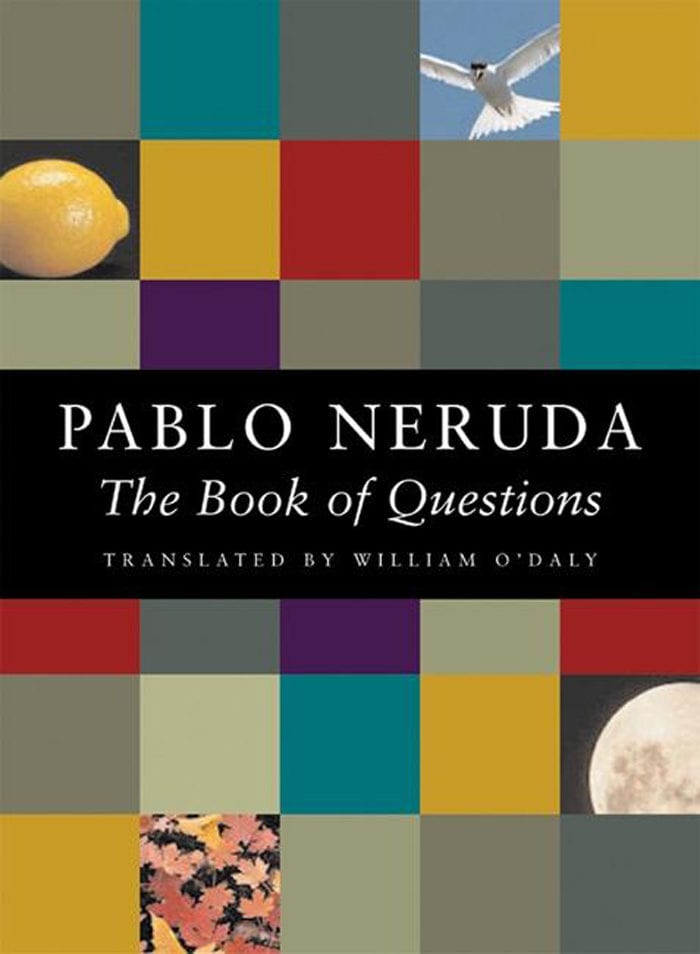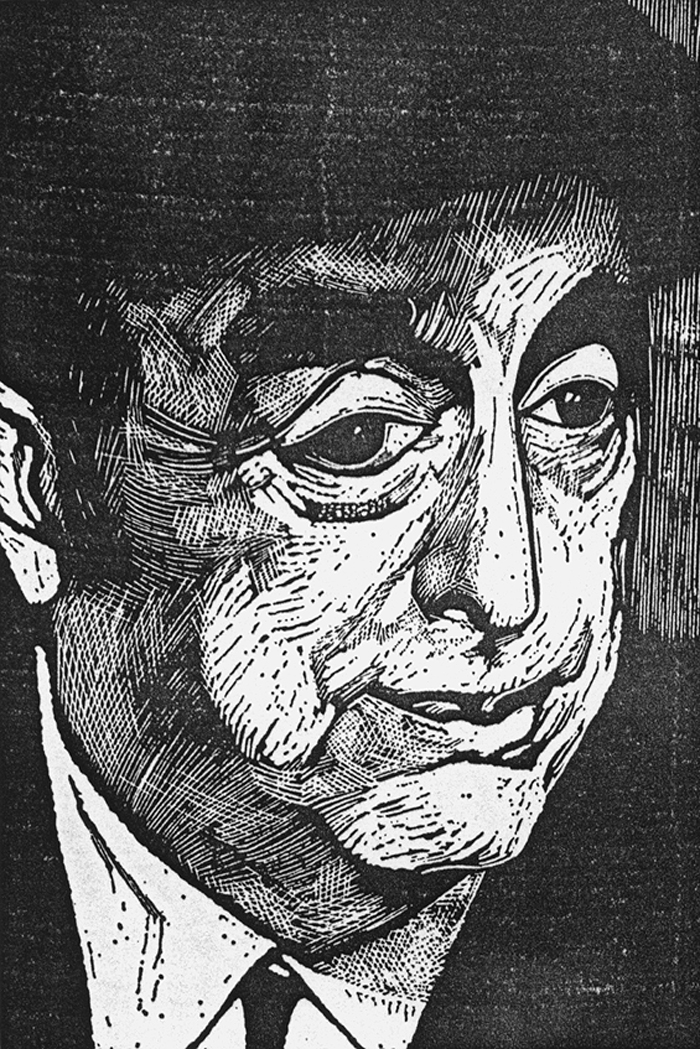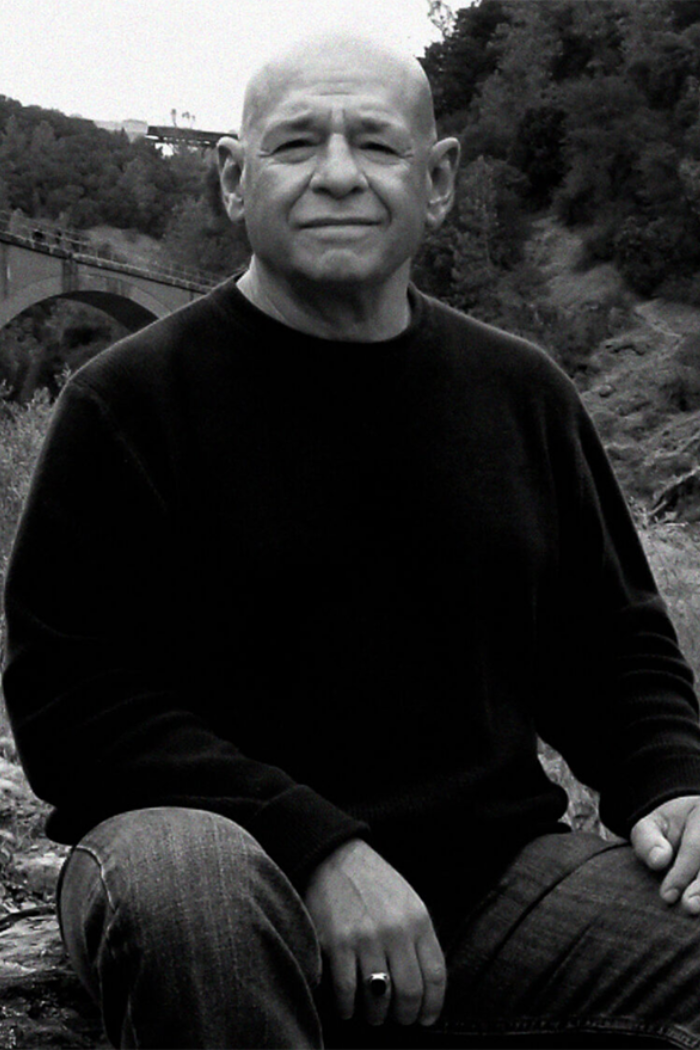
This complete translation of Pablo Neruda’s El libro de las preguntas (The Book of Questions) features Neruda’s original Spanish-language poems alongside William O’Daly’s English translations. Pablo Neruda is one of the world’s most beloved poets, and The Book of Questions is one of the best-selling volumes of his poetry. Composed of 316 unanswerable questions, these poems integrate the wonder of a child with the experiences of an adult. By turns Orphic, comic, surreal, and poignant, Neruda’s questions lead the reader beyond reason into realms of intuition and pure imagination. In his introduction, O’Daly writes, “These poems, more so than any of Neruda’s other work, remind us that living in a state of visionary surrender to the elemental questions, free of the quiet desperation of clinging too tightly to answers, may be our greatest act of faith.”
When Neruda died in 1973, The Book of Questions was one of eight unpublished poetry manuscripts that lay on his desk. In it, Neruda achieves a deeper vulnerability and vision than in his earlier work; this unique book is a testament to everything that made Neruda an artist.
Una traducción completa al inglés de El libro de las preguntas de Pablo Neruda aparece en una edición bilingüe por el traductor notable William O’Daly. Una cantidad limitada de la edición original en tapa dura está todavía disponible. En El libro de las preguntas, Neruda rechaza limitarse por la mente racional. Compuestos de preguntas incontestables, estos poemas integran el asombro de un niño con las experiencias de un adulto. Por turnos cómicas, surrealistas y conmovedores, las preguntas de Neruda guían al lector por encima de lo racional hasta las esferas de la intuición y la imaginación pura. El libro de las preguntas fue completado sólo unos meses antes de la muerte de Neruda en 1973.
ISBN: 9781556591600
Format: Paperback
XIV
And what did the rubies say
standing before the juice of pomegranates?
Why doesn’t Thursday talk itself
into coming after Friday?
Who shouted with glee
when the color blue was born?
Why does the earth grieve
when the violets appear?
Reviews
“Cryptic and intriguing, these brief answerless riddles… ask the sophisticated question of the innocent child—’Is the sun the same as yesterday’s / or is the fire different than that fire?’—and probe what it means to be human.” —Library Journal
“The English versions of the poems are excellent and can easily be compared to the Spanish original.” —Choice
“The Nobel laureate’s poems evoke pictures that make sense on a visual level before the reader can grasp them on a literal one. The effect is mildly dazzling… O’ Daly’s translations achieve a tone that is both meditative and spontaneous.” —Publishers Weekly
“These brief poems… express the Nobel Laureate’s lifelong dedication to revealing an inner structure of feeling that underlies all experience.” —Bookpaper
“William O’Daly’s fine translations of the Nobel winner Pablo Neruda’s posthumous books… are gently astonishing, the way good poetry should be.” —Crossroads
“A beautifully produced bilingual edition… featuring a wonderfully mischievous and passionate poet, although obviously aware of impending death, at the peak of his powers.” —Daily Hampshire Gazette
“The Book of Questions… contains 316 questions asked with the poet’s childlike sense of wonder—questions that demand no rational answers, only sincere thought. O’Daly’s work is a must for anyone interested in Neruda’s poetry.” —Elliot Bay Booknotes
“Copper Canyon’s project is worthy of the poet.” —Newsday
“O’Daly’s translation from Neruda’s Spanish returns the straightforward nature of Neruda’s verse, the outrageous honesty that navigates through such surreal treatment.” —Sentinel & Enterprise
“Copper Canyon Press, a Pacific Northwest nonprofit publisher who has been devoted to the enhancement and appreciation of poetry for nearly 30 years, leads the way in poetry translations… These new translations magnificently present Neruda’s late work.” —Source Weekly
“The Book of Questions bears witness to more than Neruda’s personal quest; it illumines the fundamental nature of poetry itself.” —Wichita Eagle

